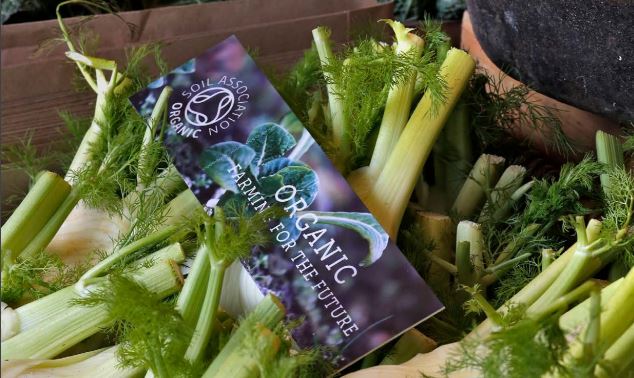Sales of organic food have fallen for the first time in a decade as rising costs-of-living force people to reconsider their priorities.
New research by Nielsen, presented at the Soil Association’s annual trade conference, showed sales have fallen by 2.1 per cent year-on-year, following 10 years of steady growth.
But analysts have said there is “still a long-term trend for sustainability”, which coupled with long-awaited government support for nature-friendly farming, should continue to encourage farmers to maintain or convert to sustainable farming.
Most people do buy organic food at least once in the year, but these ‘light shoppers’ have started to move away. The majority of organic food (77 per cent) is bought by a dedicated core (17 per cent of the population), but these so-called ‘heavy shoppers’ are also beginning to reduce what they buy in organic.
Other new research presented at the event, based on a survey of 1,000 people, found over half of respondents warn that the rising cost of living impacts their ability to buy sustainably (59 per cent).
People are reducing what they spend on meat, fish, treats, processed and ready meals, plus eating out, while others are looking to swap to cheaper brands, or even cheaper proteins (eg swapping fish for cheese), according to the survey done by research firm The Crow Flies.
Speaking at the conference, head of business insight at Nielsen, Mike Watkins, said: “There is still a long-term trend towards sustainability. And shoppers need to recognise the value in organic as part of the nature and climate crises.
“People understand the term energy crisis; they need to understand there is also a food security crisis, and we need to change the way we farm to mitigate climate and nature declines.”
He also said there is a perceived higher price around organic, when actually the difference in price is less than shoppers believe on some items. People usually buy organic food for reasons of taste and health, rather than treating it as a luxury, he added.
Chief executive of the Food, Farming and Countryside Commission, Sue Pritchard, said: “This is a disappointing if somewhat unsurprising outcome in a deepening cost-of-living crisis. People are having to make tough choices.
“We know organic farmers very often have higher costs than conventional farmers, whose business models often allow them to push the true costs of their business onto the environment – only to be picked up elsewhere by the taxpayer. It is yet another reminder that healthy, sustainably produced food must become good business for everyone.
“It would be a very good time for governments to use their buying power, through public procurement, both to support the sector and to set ambitious targets for healthy, organic food on the plates in schools and hospitals.”
“The shift to buying more sustainable and healthy products is a trend that is here to stay and we want to support farmers to make the transition to organic and more nature friendly farming which is so crucial to all of our futures,” said Lee Holdstock, senior supply chain development manager at the Soil Association.
“We are also hopeful that Defra will have some more positive news on ELMS in the next couple of weeks which will provide real incentives for farmers and their businesses long-term.”
Holdstock said the market for organic food is significantly bigger than it was in 2019 and the number of farms beginning the transition to organic is increasing.
“The market is certainly not insulated from the cost-of-living crisis and it is inevitable that sales will be hit by even the most committed organic customer trimming their spend during these challenging times but it really is time to hold our nerve,” he said.
Research figures presented were only based on food sold through supermarkets or other retailers, like box schemes, while many farmers are selling direct to consumers and would not be included.
While organic is the biggest certification that guarantees sustainable farming, there is also a huge farmer-led groundswell of interest in so-called ‘regenerative farming’. This is not an official term but has allowed farmers to cut costs and use of fertiliser, and feed, by replacing with natural plant fertility and greater reliance on soil health.















It’s like Guy said in another article. Cheap food is often not. We all pay for cleaning up the mess caused by the chemicals used in intensive systems, whilst the land gets poorer. Unfortunately, its not just those buying such food paying, but everybody.